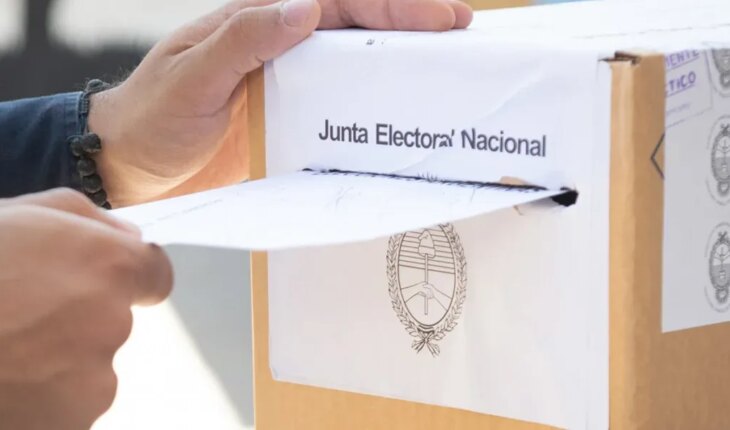The number of ballots that voters will find in the dark room next Sunday, October 22, will not be the only difference with respect to last August’s PASOs. This time, not only are no candidates elected, but one of them could become president-elect this weekend. But the definition could also be stretched to a second round, scheduled for November 19. Faced with this uncertain scenario, another question arises: What happens to the blank vote? Do you favor any of the candidates? The five candidates for president. Patricia Bullrich, Myriam Bregman, Juan Schiaretti, Javier Milei and Sergio Massa. Photo: CNE.What is the runoff and in what cases is it held? At the presidential level, the second round was reintroduced into the Argentine Constitution in the 1994 reform. Thus, between articles 94 and 98 of the Magna Carta, it is established that the formula with the most votes will be elected in the first round having obtained 45% of the votes, or 40% and a difference of 10 percentage points with respect to the affirmative votes obtained by the second most voted force. Otherwise, a runoff between the two most voted forces will be held within 30 days of the previous one. In these elections, the second round will be held on November 19. A Brazilian poll predicts the outcome of the 2023 presidential electionsSince its implementation, it has only been held once. In 1995 and 1999, both Carlos Menem and Fernando de la Rua won in the first round. In 2003 Menem and Néstor Kirchner would be the protagonists of the first runoff in local history, but the man from La Rioja declined his candidacy due to the adverse scenario that the polls anticipated. Then, in 2007 and 2011, former President Cristina Fernández de Kirchner won by a wide margin. It was then in 2015 that the first runoff occurred. It was between the ruling party candidate Daniel Scioli and the opposition Mauricio Macri. In the end, the founder of the PRO and candidate of Cambiemos won the presidency by some 678,000 votes. Four years later, the ticket headed by Alberto Fernández would be the most voted force in the first round with 48%, so it automatically became the president-elect who on December 10 will hand over the baton of command. The National Electoral Chamber (CNE) defines a blank ballot as “a valid vote, insofar as it represents a manifestation of the will of the electorate to abstain from choosing between the various proposals formulated in a legal system of suffrage; thus expressing its disagreement with all the candidates and with the proposals made by the political parties”. And it is considered so when the envelope that the voter deposits in the ballot box is “empty or with a paper of any color, without inscriptions or images.” Unlike the PASOs, in the general elections only affirmative votes will be counted, that is, those that elect a ballot of candidates. The blank vote, then, could favor the group with the most votes. By excluding these votes, even with the same number of votes, he would obtain a higher percentage, even allowing him to reach the 40 or 45% with which he could prevail in the first round.What other types of votes are there?- Affirmative votes: these are those cast by official ballot even if they had candidate cross-outs, additions or substitutions (borratina). If the same envelope contains two or more official ballots corresponding to the same party and category of candidates, only one of them will be counted and the remaining ones will be destroyed.- Invalid votes: these are those cast by means of an unofficial ballot, or by means of an official ballot containing inscriptions and/or legends of any nature, except in the case of a valid vote.- Appealed votes: They are those whose validity or nullity is questioned by the prosecutor present at the table. In this case, the prosecutor must substantiate his/her request with a specific expression of the causes that will be summarily recorded in a special flyer that will be provided by the Board.- Contested identity votes: those cast by a voter whose identity has been questioned by the polling station authorities or prosecutors.
Elections 2023: how the blank vote is counted and in which case there will be a runoff
October 22, 2023 |





